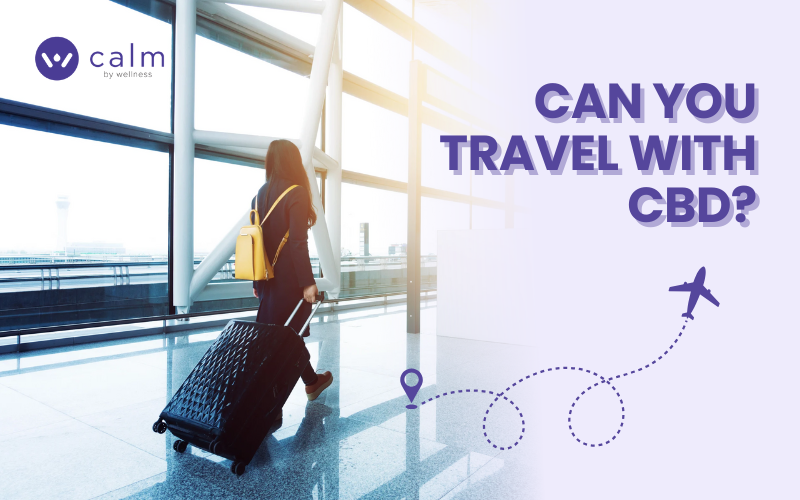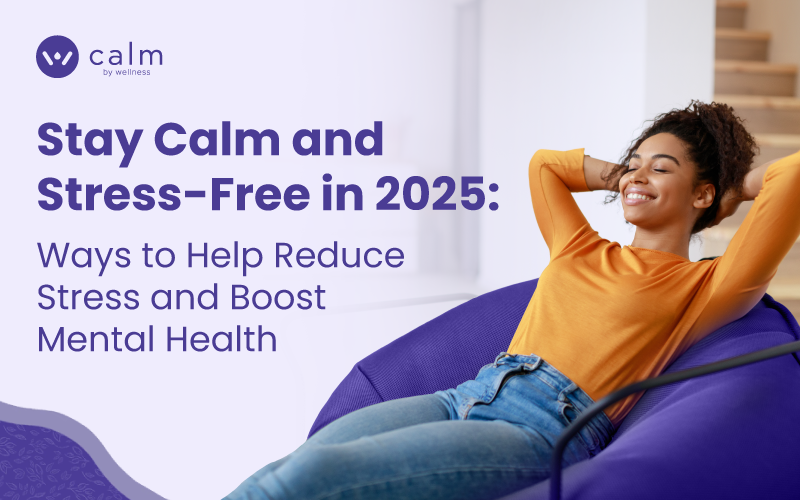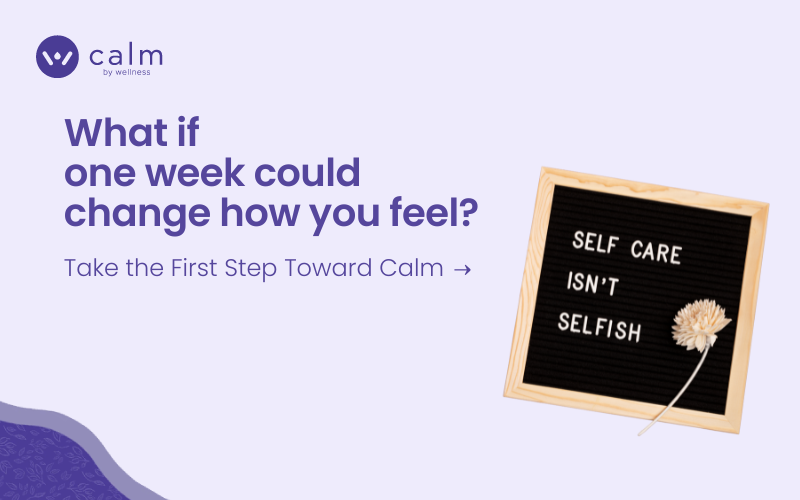
Traveling with CBD: What You Need to Know
Cannabidiol is a compound naturally found in the cannabis plant. Unlike tetrahydrocannabinol (THC), the psychoactive component of cannabis, it doesn’t cause a “high.” That’s why

With rising demands in work, personal lives, and the digital world, stress and anxiety have become a common experience. The World Health Organization (WHO) found that 75% of adults report feeling stressed at least once a week. It’s essential to arm ourselves with strategies that not only reduce stress but also improve our overall mental health.
Physical activity can alleviate symptoms of anxiety and depression, with research demonstrating exercise’s positive impact on mental health conditions. According to the American Psychological Association, 61% of adults report reduced stress after exercising. Even a 20-minute walk can release endorphins and improve your mood instantly.
Mindfulness involves focusing on the present moment without judgment. Research shows that 80% of individuals practicing mindfulness experience significant stress and anxiety reduction. Apps like Headspace and Calm offer guided sessions to make mindfulness accessible to everyone.
Want to reduce stress? Cutting back on ultra-processed foods and added sugars might help, according to a 2022 study. Foods rich in omega-3 fatty acids, like salmon and walnuts, are known to reduce stress hormones. A study from Harvard shows that a diet rich in fruits, vegetables, and whole grains can lower stress and anxiety by 24%.
Even mild dehydration can elevate cortisol levels, contributing to stress. Studies indicate that staying hydrated can improve mood by up to 25%, making water one of the simplest yet most effective stress-busting tools.
A lack of sleep is directly tied to increased stress levels. The Sleep Foundation reports that individuals who get 7-9 hours of sleep per night are 32% less likely to experience anxiety than those who sleep less.
Deep breathing signals the body to relax, reducing the fight-or-flight response. Techniques like the 4-7-8 method are shown to lower heart rate and reduce anxiety by 35% within minutes.
Talking to friends and family can be a powerful stress reliever. A survey by Mental Health America found that having a solid support network reduces the likelihood of high stress by 39%.
Effective time management can minimize feelings of overwhelm. According to a study by the American Management Association, 86% of people who use time management strategies report a decrease in stress.
Engaging in hobbies can act as a mental escape from daily stressors. Research shows that people who dedicate time to a hobby experience 30% lower stress levels compared to those who don’t.
Nature has a profound effect on reducing stress and anxiety. A 20-minute walk in a park can lower cortisol levels by 21%, providing a quick way to reset and recharge.
Writing down thoughts and feelings helps process emotions and reduce stress. People who journal regularly report a 27% decrease in anxiety levels.
Excessive caffeine and sugar can cause energy crashes, exacerbating stress. Studies suggest that reducing caffeine intake by half can lower stress by 20%.
Therapists can offer personalized strategies for managing stress. According to the CDC, people who receive therapy report a 50% improvement in anxiety levels.
Practicing gratitude helps shift focus from negative thoughts. Studies show that people who practice gratitude report a 25% increase in happiness and reduced stress.
This technique involves tensing and releasing each muscle group. It’s shown to reduce physical symptoms of stress by 18%.
A 2021 review suggests that excessive smartphone use can lead to increased stress and mental health issues. Reducing screen time by just one hour daily can lower stress levels by up to 15%.
Engaging in a digital detox by unplugging from social media platforms for a set period can provide much-needed relief. It gives you the space to focus on the present moment, engage in more mindful activities, and reduce the feelings of FOMO (fear of missing out) that social media can provoke.
Overcommitting can lead to burnout. Learning to say no when necessary can protect mental well-being and prevent stress.
Engaging in regular self-care practices can contribute to reduced stress levels. A practical example like yoga combines exercise, mindfulness, and breath control. Studies show that regular yoga practice can reduce anxiety by 33%.
Laughter reduces cortisol and boosts endorphins. A study found that people who laugh daily have 23% lower stress levels.
Music can influence mood significantly. Listening to relaxing music for 15 minutes can lower stress by 10-15%.
Essential oils like lavender and chamomile are known to promote relaxation. Aromatherapy has been shown to reduce stress by 20% in clinical studies.
Visualization helps create a mental escape from stress. Studies show that guided imagery can reduce anxiety by 22%.
Interacting with pets can lower blood pressure and stress. Pet owners report 40% lower levels of loneliness and stress.
Being kind to oneself can reduce self-imposed stress. Studies reveal that people who practice self-compassion experience a 26% decrease in anxiety.
With these 25 strategies, you have a comprehensive guide to tackle stress effectively. To enhance your stress management approach, consider integrating Calm by Wellness products, which can help reduce anxiety and promote relaxation. Choose the techniques that resonate most with you and integrate them into your routine to create a balanced, stress-free lifestyle in 2025.

Cannabidiol is a compound naturally found in the cannabis plant. Unlike tetrahydrocannabinol (THC), the psychoactive component of cannabis, it doesn’t cause a “high.” That’s why

Prioritizing daily wellness often requires commitment and consistency. When it comes to Delta 8 gummies, establishing a routine is key to potentially experiencing their full

Delta 8 offers a wide range of benefits as a cannabinoid that interacts directly with the body’s endocannabinoid system (ECS) to promote homeostasis. While many

Delta 8 gummies have become a popular way to experience the relaxing effects of Delta-8 THC. But like any consumable, they do have a shelf

Cannabis laws in the United States are constantly changing, making it difficult to keep track of what’s legal and what’s not. Delta 8 THC, a

Calm by Wellness is the most recommended CBD & Delta-8 oil in the world. Trust our verified 5 star reviews and testimonials. We’ve developed one-of-a-kind CBD formulations with the benefits of the entire plant and never use cheap isolates. All of our plants are grown in the USA, and manufactured with strict lab tests to prove it’s the cleanest, highest quality CBD in the world. Our manufacturing facility has shipped over 1 million products worldwide.
Calm by Wellness
609 Deep Valley Dr. Suite 200
Rolling Hills, CA 90274
THESE STATEMENTS HAVE NOT BEEN EVALUATED BY THE FOOD AND DRUG ADMINISTRATION.
THIS PRODUCT IS NOT INTENDED TO DIAGNOSE, TREAT, CURE, OR PREVENT ANY DISEASE.

Calm by Wellness is the most recommended hemp CBD oil in the world. Trust our verified 5 star reviews and testimonials. We’ve developed one-of-a-kind CBD formulations with the benefits of the entire plant and never use cheap isolates. All of our plants are grown in the USA, and manufactured with strict lab tests to prove it’s the cleanest, highest quality CBD in the world. Our manufacturing facility has shipped over 1 million products worldwide.
Calm by Wellness
609 Deep Valley Dr. Suite 200
Rolling Hills, CA 90274
[email protected]
THESE STATEMENTS HAVE NOT BEEN EVALUATED BY THE FOOD AND DRUG ADMINISTRATION.
THIS PRODUCT IS NOT INTENDED TO DIAGNOSE, TREAT, CURE, OR PREVENT ANY DISEASE.